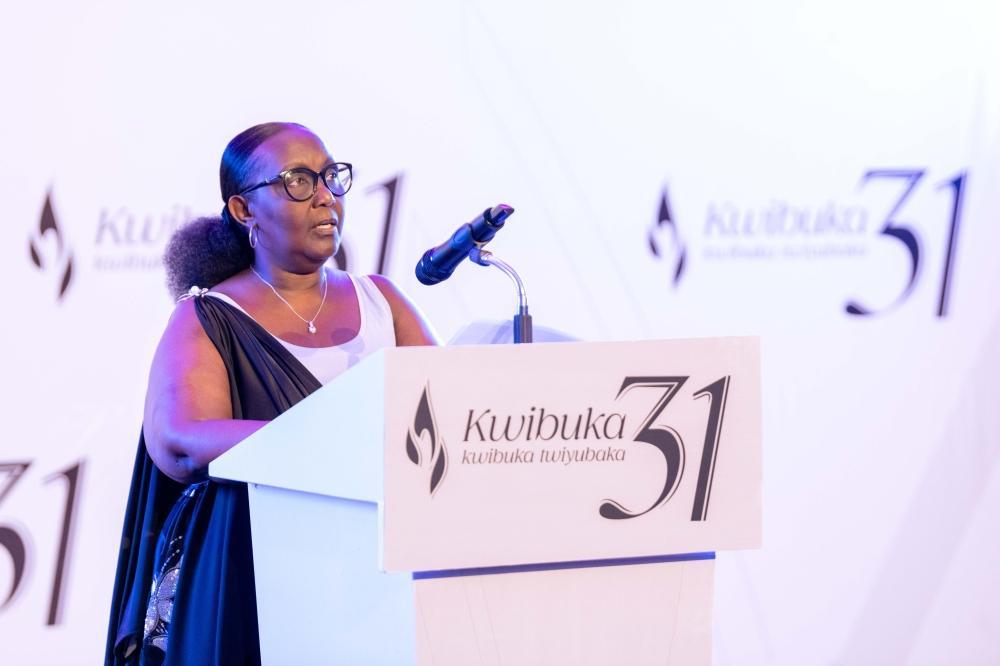Africa-Press – Rwanda. Chief Justice Domitilla Mukantaganzwa has called on all practitioners within the Rwandan justice system to give heightened attention to crimes related to genocide ideology, stressing the need for exemplary punishment to prevent recurrence and uphold national unity.
“We must always remember the gravity and consequences these crimes have on the nation,” Mukantaganzwa said.
Her call to action was made during an event held by the Judiciary and Prosecution to commemorate 83 former staff members killed during the 1994 Genocide against the Tutsi.
Mukantaganzwa highlighted the crucial role of the justice sector in safeguarding lives, people’s property, and reinforcing a national identity, free from division, hatred, and injustice.
“To achieve this, each of us must fulfill our responsibilities and provide justice services to all people, without discrimination,” she added.
Mukantaganzwa also urged the justice community to honor the memory of Genocide victims, commit to ensuring genocide never happens again, and be vigilant against hate ideology that is still spread not just in Rwanda, but across the region, particularly in DR Congo.
Prosecutor General Angelique Habyarimana echoed Mukantaganzwa’s call to action, stressing the importance of understanding the role of justice institutions in ensuring genocide never recurs.
Habyarimana underlined the need to break the cycle of impunity that characterized the past by prosecuting all perpetrators without discrimination, bias or corruption.
“In particular, we must pursue the crimes of genocide ideology, the trivialization of genocide, and the abuse of survivors,” said the Prosecutor General.
“There have been instances where such crimes were committed, yet the people involved were not prosecuted; some were even rewarded.”
To address this, Habyarimana pointed to Rwanda’s legislative action, including the 2008 law punishing genocide ideology and related crimes, which was later amended in 2013 and 2018 to enhance its effectiveness.
“Justice professionals and every Rwandan should take it upon themselves to fight against genocide ideology to ensure it never resurfaces,” she added.
Habyarimana also highlighted that the ideology of genocide is still propagated in neighboring countries and in Europe and North America, particularly by individuals who fled Rwanda after the genocide, including children of convicted perpetrators.
She called on members of the justice chain to intensify efforts to pursue those accused of genocide ideology and related crimes, including tracking and prosecuting fugitives.
“We continue to send indictments to various countries, requesting the arrest and extradition of perpetrators of the Genocide against the Tutsi who fled the country, and this is yielding results,” Habyarimana said.
The Prosecutor General noted that 30 Genocide suspects had been extradited to Rwanda, while 29 others were sentenced by courts in eight countries where they had fled to.
“We urge those who have information on the whereabouts of perpetrators to submit it to the Judicial Police and the Prosecution Service to facilitate justice,” she added.
For More News And Analysis About Rwanda Follow Africa-Press






